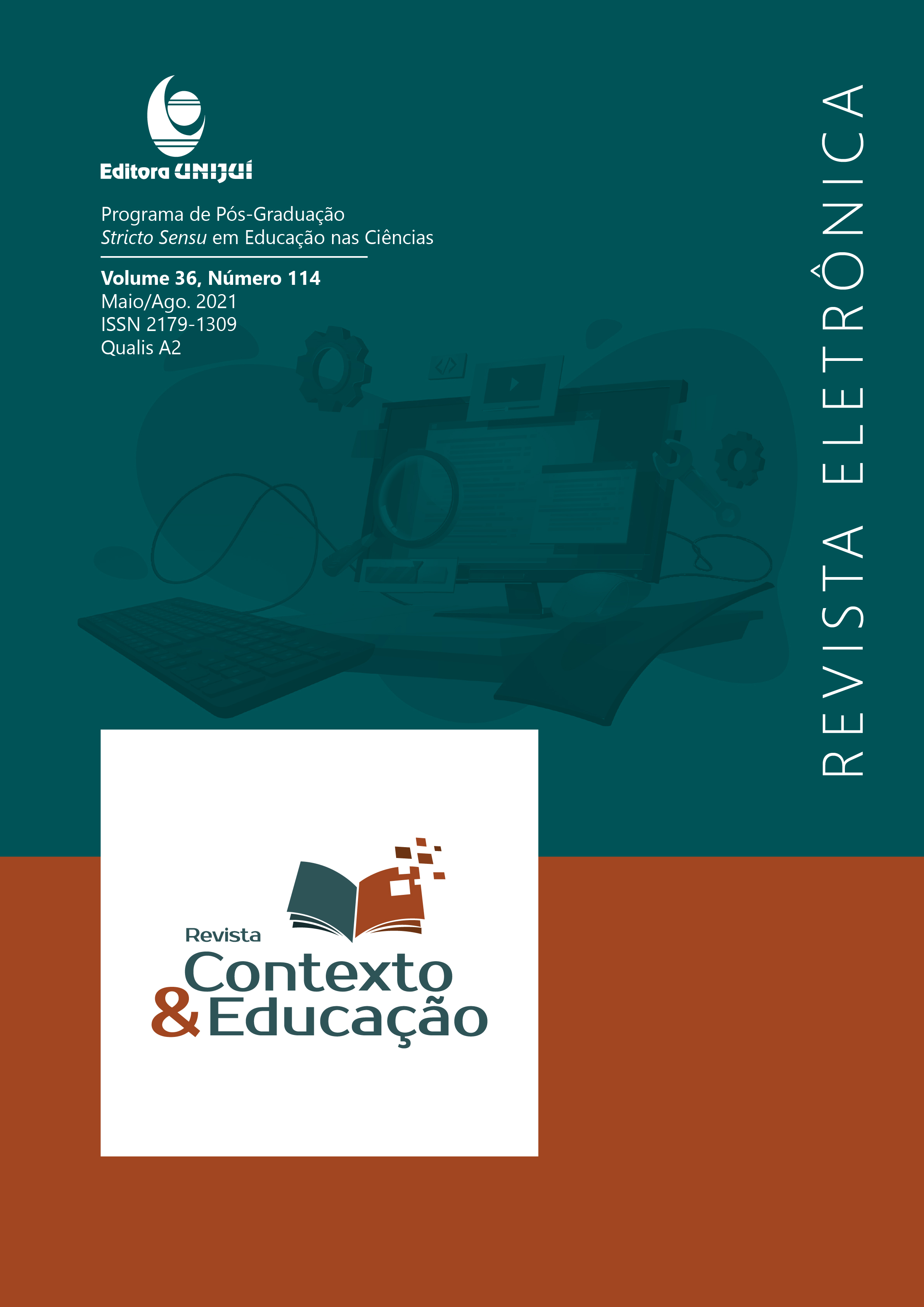UMA PESQUISA DOCUMENTAL SOBRE O PENSAMENTO COMPUTACIONAL NO ENSINO SUPERIOR: ANÁLISE DOS PROJETOS PEDAGÓGICOS DOS CURSOS DE LICENCIATURA EM COMPUTAÇÃO NO BRASIL
A DOCUMENTAL RESEARCH ABOUT COMPUTATIONAL THINKING IN HIGHER EDUCATION: ANALYSIS OF PEDAGOGICAL PROJECTS OF COMPUTER SCIENCE TEACHER EDUCATION PROGRAMS IN BRAZIL
DOI:
https://doi.org/10.21527/2179-1309.2021.114.54-71Palavras-chave:
Pensamento computacional, Ensino superior, Licenciatura em Computação, Formação de professoresResumo
Com a crescente integração do pensamento computacional (PC) à educação básica, fazem-se necessárias políticas voltadas à formação de professores. Embora haja várias iniciativas nos âmbitos acadêmico, institucional e governamental para apoiar a formação continuada dos professores que já atuam nas escolas, pouco se tem feito em relação à formação inicial dos professores, ou seja, no sentido de integrar o PC aos projetos pedagógicos dos cursos de licenciatura. As primeiras iniciativas têm despontado nas licenciaturas em computação (LC), que de fato têm um papel chave para promover o PC na educação básica. Este artigo apresenta uma pesquisa documental feita a partir da plataforma e-MEC e com base nos projetos pedagógicos dos cursos (PPC) de LC disponíveis online, que analisa como tem sido feita a integração do PC. Os resultados indicam que o PC tem sido apresentado como habilidade essencial a todos, e fundamentalmente enquanto ferramenta para resolução de problemas em qualquer área do conhecimento, tendo o licenciado em computação a responsabilidade de promovê-lo na educação básica. Embora ainda sejam poucos os cursos de LC que contemplam o PC em seus projetos pedagógicos, entende-se que eles indicam uma transformação em andamento, que demanda tempo dada a complexidade de reformulação de projetos pedagógicos.
Downloads
Publicado
Como Citar
Edição
Seção
Licença
Ao publicar na Revista Contexto & Educação, os autores concordam com os seguintes termos:
Os trabalhos seguem a licença Creative Commons Atribuição 4.0 Internacional (CC BY 4.0), que permite:
Compartilhar — copiar e redistribuir o material em qualquer meio ou formato;
Adaptar — remixar, transformar e criar a partir do material para qualquer fim, inclusive comercial.
Essas permissões são irrevogáveis, desde que respeitados os seguintes termos:
Atribuição — os autores devem ser devidamente creditados, com link para a licença e indicação de eventuais alterações realizadas.
Sem restrições adicionais — não podem ser aplicadas condições legais ou tecnológicas que restrinjam o uso permitido pela licença.
Avisos:
A licença não se aplica a elementos em domínio público ou cobertos por exceções legais.
A licença não garante todos os direitos necessários para usos específicos (ex.: direitos de imagem, privacidade ou morais).
A revista não se responsabiliza pelas opiniões expressas nos artigos, que são de exclusiva responsabilidade dos autores. O Editor, com o apoio do Comitê Editorial, reserva-se o direito de sugerir ou solicitar modificações quando necessário.
Somente serão aceitos artigos científicos originais, com resultados de pesquisas de interesse que não tenham sido publicados nem submetidos simultaneamente a outro periódico com o mesmo objetivo.
A menção a marcas comerciais ou produtos específicos destina-se apenas à identificação, sem qualquer vínculo promocional por parte dos autores ou da revista.
Contrato de Licença (para artigos publicados a partir de outubro/2025): Os autores mantém os direitos autorais sobre seu artigo, e concedem a Revista Contexto & Educação o direito de primeira publicação.


